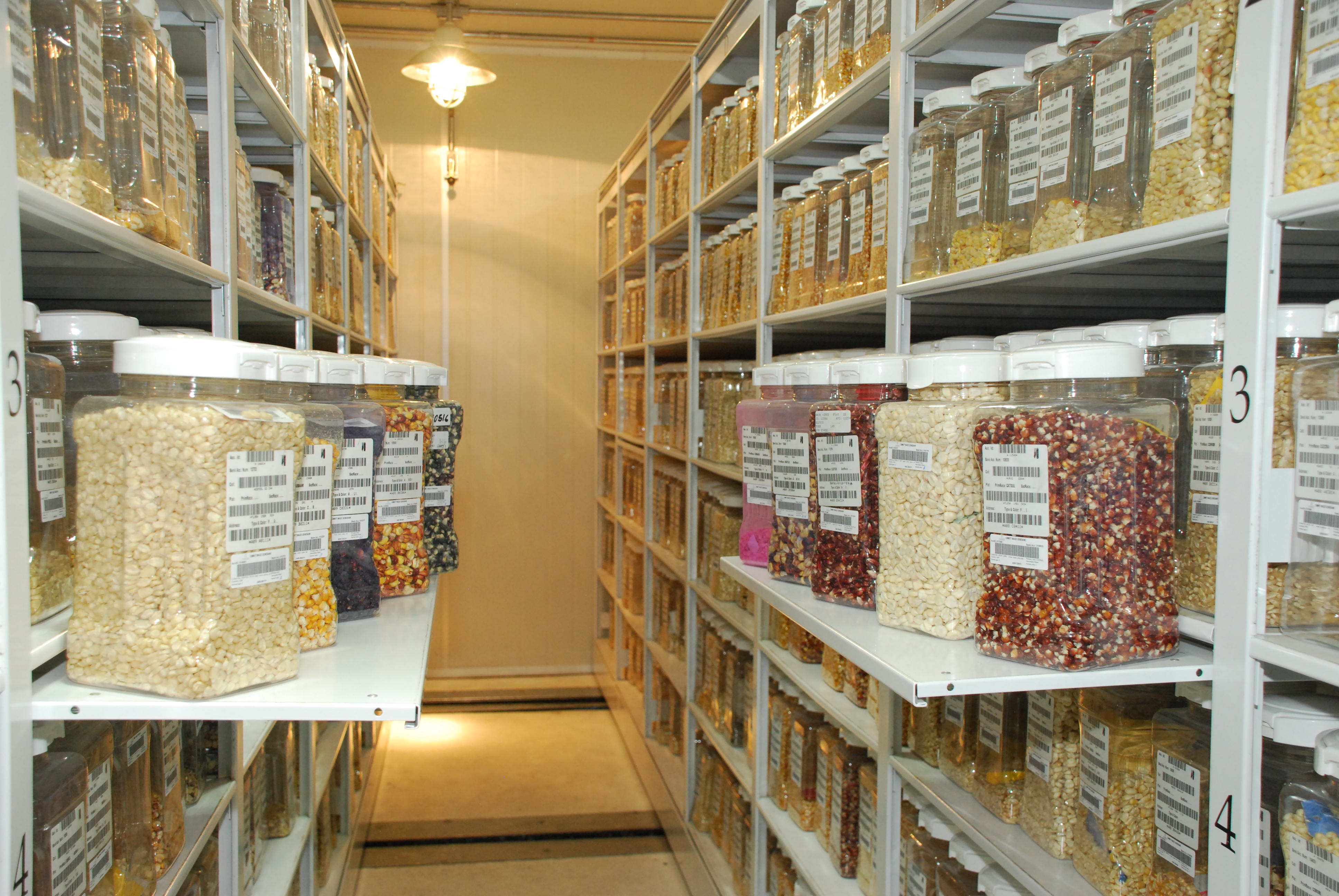Features
CIMMYT’s knowledge sharing efforts contribute to improved seed production in Africa
 Capacity development
Capacity development
A training held from June 13 – 23, 2016 emphasized hand pollination in maize variety development and seed multiplication.
Seeding the future: Emergency support for drought-affected farmers in Ethiopia
 Capacity development
Capacity development
The 2015-2016 El Niño has led to drought leaving 10.2 million people – more than 1 in 10 Ethiopians – in need of emergency food assistance.
Maize seed systems in Africa: Understanding the basics
 Climate adaptation and mitigation
Climate adaptation and mitigation
Since 2006, CIMMYT has developed 200 drought-tolerant varieties and hybrids, many of which possess desirable traits such as resistance to major diseases.
From A to Z: Developing nutritious maize and wheat at CIMMYT for 50 years
 Climate adaptation and mitigation
Climate adaptation and mitigation
Over the past 50 years, various research activities have been undertaken to boost protein quality and micronutrient levels in maize and wheat to help improve nutrition in poor communities.
Genetically engineered crops safe to grow and eat, U.S. National Academy of Sciences concludes
 Innovations
Innovations
GE crops are as safe to eat as conventionally bred crops and have benefited the environment and ecosystem diversity, according to a new study
CIMMYT, Mexico honor legacy of Norman Borlaug
 Nutrition, health and food security
Nutrition, health and food security
To mark CIMMYT’s 50th anniversary, Mexico’s Secretariat of Agriculture launched a photo exhibition honoring Nobel Prize Laureate Norman Borlaug.
Harnessing maize biodiversity for food security, improved livelihoods in Africa
 Capacity development
Capacity development
Diverse, stress tolerant maize varieties are benefiting smallholders throughout sub-Saharan Africa.
Tanzania seed company increases demand for drought-tolerant maize
 Nutrition, health and food security
Nutrition, health and food security
Locally adapted marketing initiatives are successfully converting farmers to the high-performing, drought-tolerant maize variety Lubango in Tanzania.
New varieties reignite maize production in Pakistan
 Nutrition, health and food security
Nutrition, health and food security
New maize varieties have the potential to increase production, enhance nutrition and strengthen national industry in Pakistan.
Award recognizes agronomist Ram Malik for successes in India’s rice-wheat systems
 Nutrition, health and food security
Nutrition, health and food security
Ram Kanwar Malik recognized for 30 years of improving India’s rice-wheat systems.
Millions of smallholders in Africa benefit from climate resilient drought-tolerant maize
 Climate adaptation and mitigation
Climate adaptation and mitigation
At least 40 million smallholder farmers in sub-Saharan Africa are profiting from more than 200 new drought-tolerant varieties of maize.
Tackling challenges to cereal production through cross-crop collaborations
 Climate adaptation and mitigation
Climate adaptation and mitigation
Cropping systems can become more resilient in the face of climate change through better coordination and standardization.
Global wheat breeding provides billions in benefits, CIMMYT study shows
 Nutrition, health and food security
Nutrition, health and food security
Almost half the world’s wheat land is sown to varieties that come directly or indirectly from research by CGIAR scientists, according to a new report.
Scientists aim to adapt wheat to a warmer climate with less water
 Climate adaptation and mitigation
Climate adaptation and mitigation
Scientists battling to increase wheat production by more than 60 percent over the next 35 years to meet projected demand are optimistic that they have begun to unravel some genetic mysteries.
At 50-year mark, CIMMYT scientists strive for gender equity
 Gender equality, youth and social inclusion
Gender equality, youth and social inclusion
Efforts to meet agricultural needs of women farmers to bolster global food security took shape in CIMMYT’s early days.
